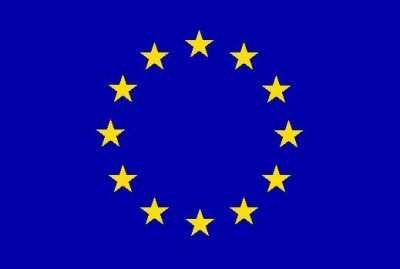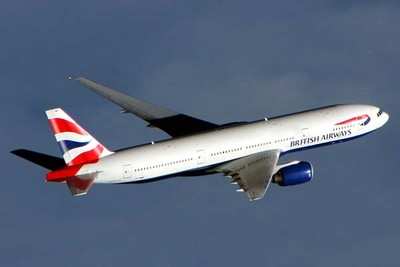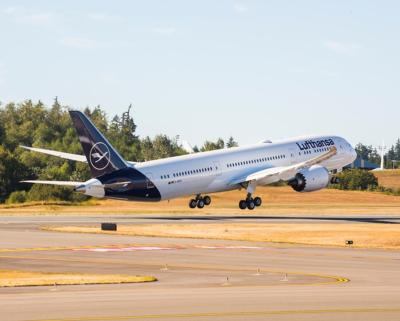The Pitfalls of Utopian Idiocies
The E.U.’s Fit for 55 legislation sets an initial goal of reducing European CO2 emissions by 55-percent in 2030—compared to 1990 levels. The initiative comprises bloc-level obligations to scale-up the use of Sustainable Aviation Fuels (SAF) by all flights departing European airports.

European airlines fear the imminent loss of revenues, passengers, or both to rival air-carriers based outside the E.U., the whole of which are legally entitled to ignore the Fit for 55 legislation, which is broadly disparaged as a preliminary step toward the E.U. central government’s long-term goal of European carbon neutrality by 2050.
Air travel is a carbon intensive activity. Were the global aviation industry its own country, it would be among the top-ten carbon-producing nations on the planet. Over the next 15-years, global air traffic is expected to double. The short-term answer to which airlines are turning, primarily to satisfy regulatory mandates or curry favor with noisy activist groups, are sustainable aviation fuels—Jet-A alternatives made from feedstocks the likes of grains, vegetable and animal waste, and used cooking oils.
Speaking at Brussels’s Airlines for Europe (A4E) aviation summit on 29 March, Lufthansa CEO Carsten Spohr stated: "The European airline industry has to live with the fact that it's cheaper to bypass environmental reduction ideas if you hop outside of Europe.”
Citing the example of an airline flight originating in Brussels and proceeding to Singapore via Paris, Mr. Sphor pointed out the operator of such a flight was mandated by E.U. law to remit monies—through extant carbon emissions trading schemes—for the European leg of the trip. "If you want to go via Doha,” Mr. Sphor explained, “you don't need to pay emission trading, you also don't need to be part of blending [SAF and conventional jet-fuels].”

Carbon-dioxide deriving of aircraft operations has been included in the E.U.’s emissions trading scheme since 2012. Under subject system, all air-carriers operating in Europe—European and non-European alike—are obligated to monitor, report, and verify their respective CO2 emissions for purpose of surrendering monies against such.
Qatar, meanwhile, has obtained a controversial "open skies" agreement with the European Union to increase the number of flights between its capital city, Doha, and the E.U.’s 27-nation bloc.
What’s more, Saudi Arabia is currently investing billions to transform King Khalid International Airport (RUH) in Riyadh, the kingdom’s capital city, into a massive regional aviation hub—after the fashion of Dubai.
In 2022, Istanbul Airport (IST), Turkish Airlines’ primary hub, accommodated 64.3-million passengers, thereby surpassing both London's Heathrow (LHR) and Paris's Charles de Gaulle (CDG) airports.
Istanbul plans to triple the number of flights and passengers passing through IST.
Istanbul Airport CEO Kadri Samsunlu stated: "Climate change and the legal regulations that go with it are inevitable. Important measures are going to be taken on the E.U. side, and as a result, the center of gravity of air transport is likely to shift to the East.”
Alain Battisti, former president of France's National Aviation Federation, remarked: "Istanbul is ideally placed for going to Asia, Africa, and eastern Europe. We have to stop being naïve.”
A study undertaken by the Dutch research group SEO concluded that E.U. climate measures would see the number of intra-European air-travelers decline by 14-percent and non-European aviation hubs gain passengers.
Augustin de Romanet, head of France's ADP airports group, suggested a major shift east "would make the European companies bankrupt.”
A4E interim chief Laurent Donceel asserted Fit for 55 will increase European air-carriers’ operating costs by €577-billion ($629-billion) by 2050.

The group Europeans for Fair Competition, which includes airlines and aviation unions, is seeking a carbon border tax—a duty on imports based on the carbon emissions resultant of the production of a given product. Such measures—commonplace in the E.U.—discourage CO2 emissions and, as trade-related measures, affect both production and exports.
Roman Mauroschat, an aviation policy officer at Transport and Environment, a Brussels think tank, opined carbon border taxes only make sense when applied to sectors in which production risks being shifted to third countries exporting goods to Europe.
In addition to CO2 trading schemes and taxes, European air-carriers and air-travelers stand to be severely impacted by the price of sustainable aviation fuels, which currently command prices four to five-times higher than those of conventional jet-fuels.
As fuel costs account for ten to 12-percent of airline ticket prices, a quick calculation reveals that a fourfold increase in fuel cost would see a €263 ticket (from London (LHR) to Warsaw (WAW) at the average prevailing jet-fuel cost of €6.00\gal) increase in price to a cool €1,052. Factoring in the prerequisite 50:50 biofuel to petroleum jet fuel ratio, we reduce that figure to €526—but the objective is to operate future flights on SAF exclusively, ergo, back the fare climbs to €1,052.
Notwithstanding the regrettable fact that €1,052 intra-Europe round-trip tickets are beyond the means of many Europeans, the fare and the economics by which it was engendered succeeds, theoretically, in meeting stated E.U. goals of cutting aviation CO2 emissions by eighty-percent. What’s more, by pricing commercial aviation beyond the financial purviews of the lower and middle classes, the overall number of air-travelers is dramatically diminished as well—a fortuitous eventuality insomuch as unwashed multitudes of has-been fliers will likely require the majority of their salaries—to include monies formerly given over to vacations and air-travel—to afford food, medications, household items, electronics, and every other commercial good destined to skyrocket in price as the cost of European air-freight increases by a factor of four to account for E.U. SAF mandates.
At present, despite a great deal of lip-service and posturing, demand for SAF is tepid. Limited demand adversely impacts investment to drive the creation of economies of scale upon which the reduction of SAF costs are predicated. It’s a vicious cycle certain to ensure that SAF—so long as petroleum jet-fuel remains cheap and plentiful—amounts to nothing more than an ornate hook on which to hang good intentions, and a colorful banner in the tiresome and pointless semaphore of virtue signaling.
 ANN's Daily Aero-Linx (06.29.25)
ANN's Daily Aero-Linx (06.29.25) ANN's Daily Aero-Term (06.29.25): Gross Navigation Error (GNE)
ANN's Daily Aero-Term (06.29.25): Gross Navigation Error (GNE) Classic Aero-TV: Anticipating Futurespace - Blue Origin Visits Airventure 2017
Classic Aero-TV: Anticipating Futurespace - Blue Origin Visits Airventure 2017 NTSB Final Report: Cirrus SR22
NTSB Final Report: Cirrus SR22 Airborne Affordable Flyers 06.26.25: PA18 Upgrades, Delta Force, Rhinebeck
Airborne Affordable Flyers 06.26.25: PA18 Upgrades, Delta Force, Rhinebeck





